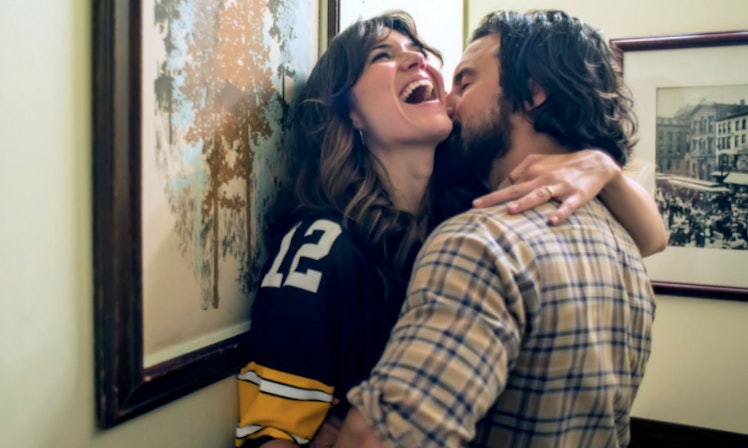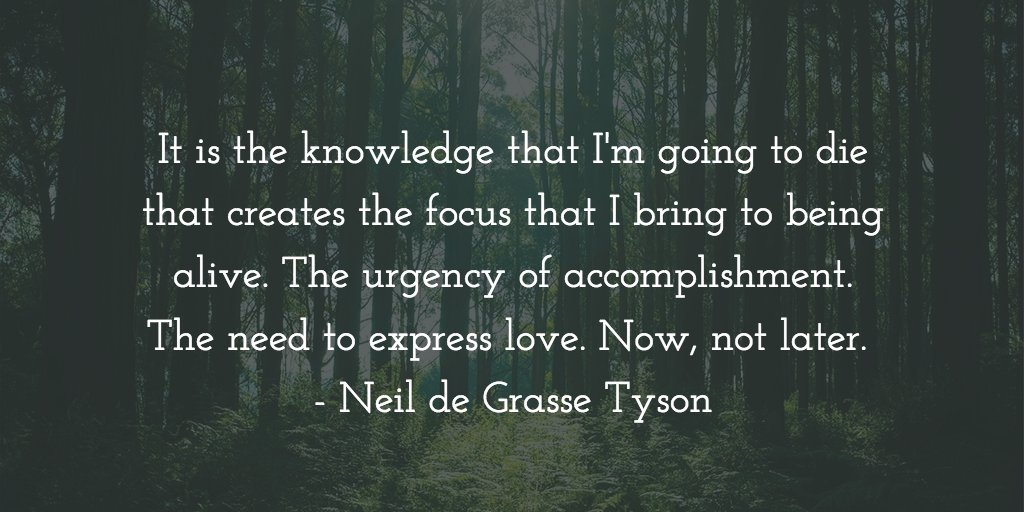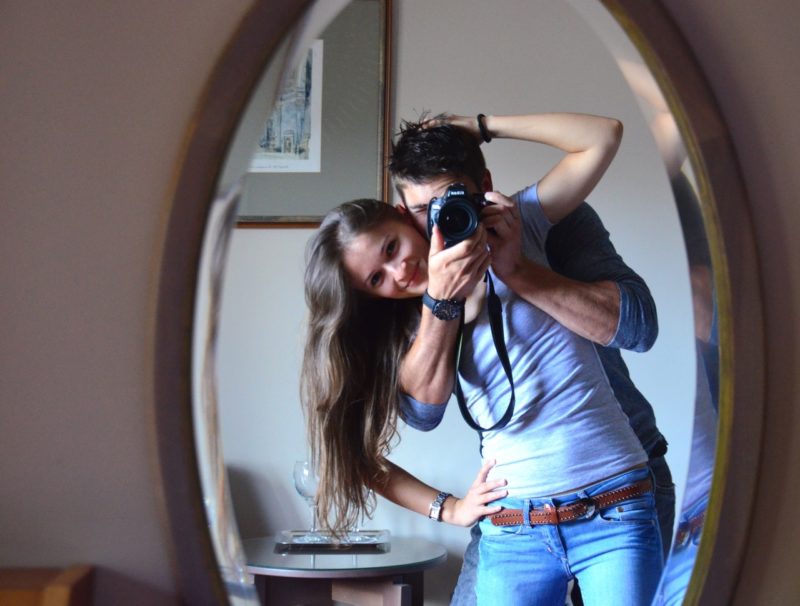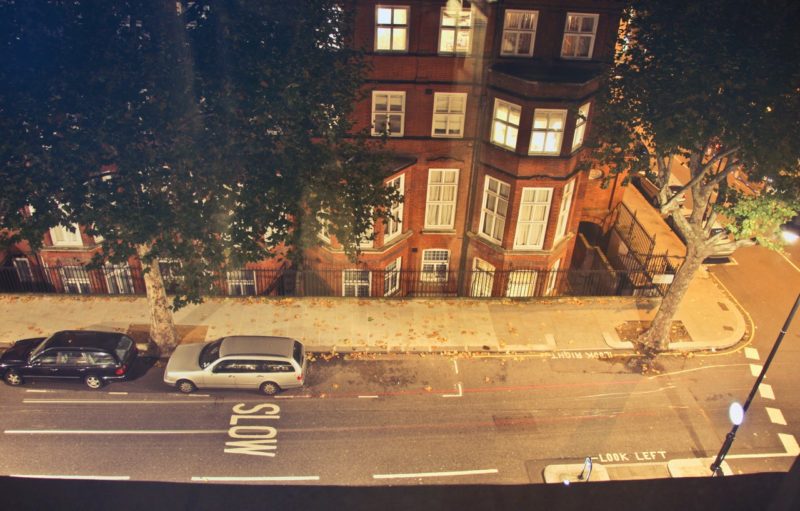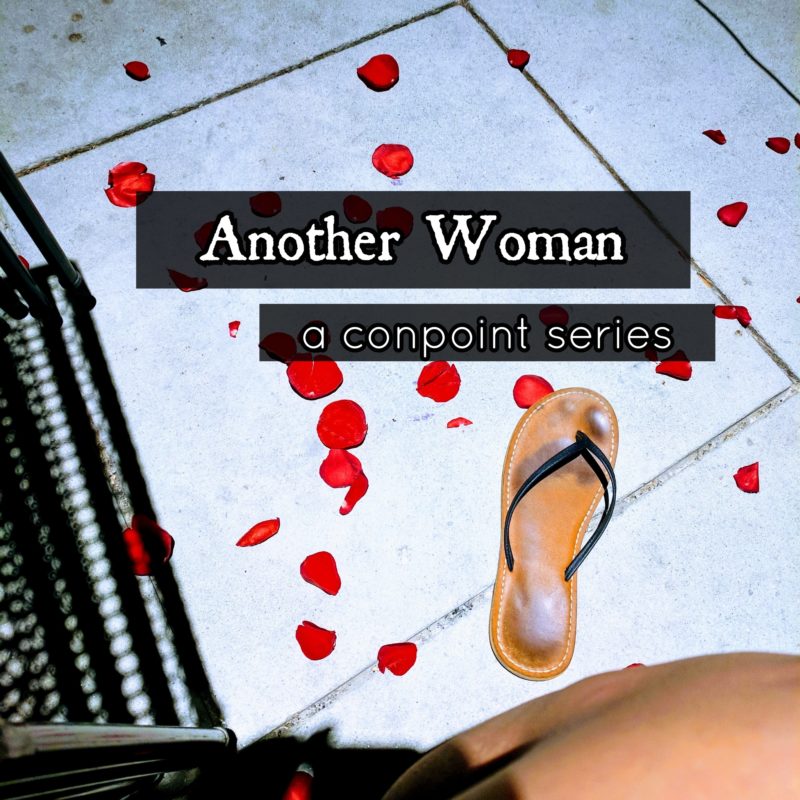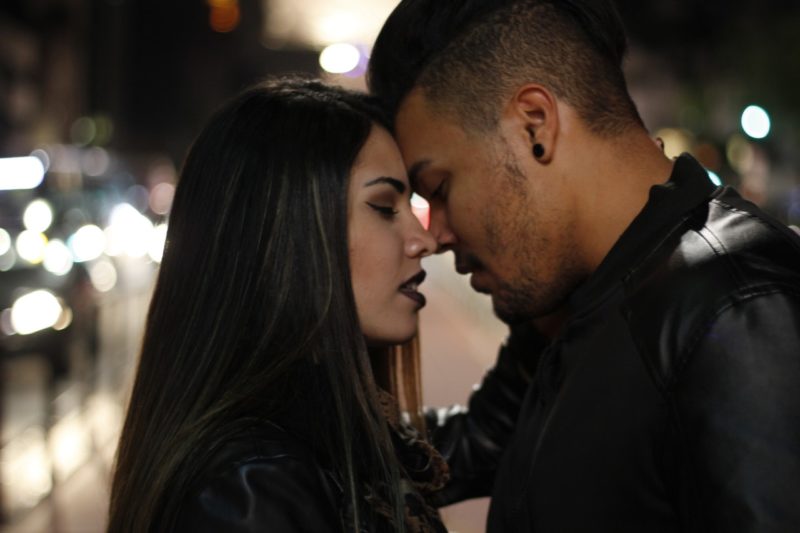
Around the time I was fooling around with taken men, I developed a nasty habit of petty theft. My sticky fingers found their way around grocery stores and shopping malls alike, tucking away cookies, bell peppers, blouses, and pore strips. There was an unplaceable thrill in taking something that was not rightly mine—and getting away with it.
I never stole as kid. I grew up in a Midwestern hometown of 4,000 people, a community that raised me to try and do the right thing more often than not. When the 24/7 Super Walmart first opened up, there was a pastry section that operated by the honor system. Since my friends and I didn’t drink in high school, we spent our time and our money in that megastore, dropping browned coins and crumpled singles into the collection box, never paying a penny less for a donut.
As someone who had also seen the other side of retail from working at my parents’ restaurant, I gritted my teeth at those who didn’t pay their fair share—like the group of teens who dined and dashed out the backdoor and the obese woman who dropped naked chicken wings into her purse. I remained adamant against stealing after graduating high school and leaving the town’s humble living far behind.
But somewhere down the line, I lost the once effortless habit of doing the right thing without reason or reward. A mix of entitlement, resentment, and desperation drove me to be the type of person my younger self could not empathize with, and likely, did not expect becoming.
***
My first time stealing was when I was 23 or 24.
It happened at a super-sized Asian grocery store that smelled of fish and vinegar. Shortly before heading to checkout, I pocketed a sleeve of chocolate cookies and sheet of animal stickers, the amount totaling to a little over $2. I paid for the rest of my groceries, hoping nothing weird would happen in a ritual I’d done a thousand times (sans the thievery part). My steals felt twice their size in my pocket. My neck started sweating. I tried to smile at the cashier, but not more than usual.
As long as I could walk from the register to the sliding doors without incident, I was in the clear. The cashier handed me my receipt, and it felt like this strenuous effort to look straight ahead at the exit and walk to my parking spot at a normal pace. Once inside my car, I texted my best friend that I stole and that I didn’t know why.
How do you feel, he asked. And I told him it was thrilling.
The first time crossing the line is the hardest. Everything after that, incrementally, becomes easier.
***

My illegal hobby disgusted one of the taken men. He scolded me on a particular afternoon hangout, or whatever you want to call the time we spent clothed.
“Stop stealing! That’s seriously so unattractive.”
“At least I’m not hurting anyone,” I said, modeling my newly acquired shirt in my bedroom mirror.
“It’s wrong.”
People tend to pass judgement on those who have different tastes in whom it’s okay to wrong.
“It’s not like I’m stealing from a local shop. The minimum wage workers still get paid. You think the corporations are going to miss that money?”
I told him I handed cash to a homeless man after leaving the mall with my stolen goods, as if that would somehow redeem me. I rationalized that I was simply “redistributing the wealth.”
“Don’t you think that money is going to do more for him than some wealthy exec?” I said.
“I guess,” he said. “But still.”
The key to moral compatibility is not behaving a certain way, but acknowledging whether your actions are good or bad. This was something very small for me, but I gave him credit for knowing how wrong this was, how wrong we were. I can’t say we were good people, but at least we were self-aware.
***
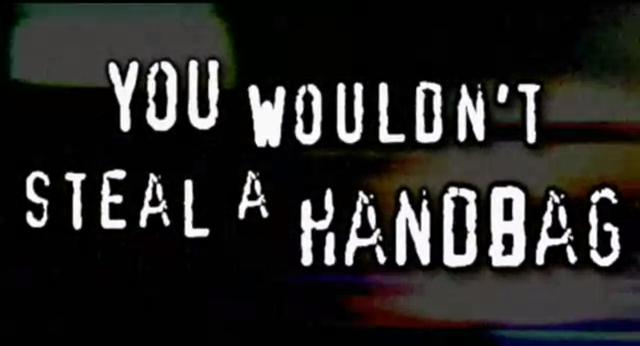
I think back to those cheesy commercials that discouraged people from pirating movies:
You wouldn’t steal a handbag…you wouldn’t steal a car…
The truth is, some of us would. The truest measure of our morals is what we choose to do when we believe there will be no consequences. I question again and again what altered inside of me and made me okay with stealing. What made me okay with not only claiming something or someone that was not mine, but also disregarding someone else’s ownership? I don’t think it mattered whether it was a sugary baked good or a boyfriend—when I chose to take, I acted on principle.
I can’t offer an eloquent or reasonable explanation for why I willingly became another woman or a thief. I can only sum it up as a sentiment:
I don’t feel like paying the price today. I feel like getting what I want.
***

During the peak of my kleptomania, I actually returned to the exact clothing store I managed in my first job out of college. It was a dimly lit sales floor, where I spent countless hours folding fitted graphic Ts and polos into perfect quadrants, appeasing middle-aged mothers and their hopes of outfitting sons and daughters into teenage popularity.
The store took an undeserved brunt of my resentment for not “making it” in the real world. It was a tangible aspect of my life I could pin my disappointment on.
In returning to a place where I felt I was wronged, stealing was my small way of revolting against the system, the corporate execs, and the unchallenged laws of society.
In the same spiteful vein, my vigilante ways also transcended to my pursuit of romantic justice. The dating scene had not served me well, had not produced a worthwhile partner when I had invested the time and energy of looking and hoping and hurting. The normal ways of finding intimacy weren’t working out, so I took matters into my own hands. I figured if I couldn’t foster a healthy and meaningful relationship by the rules, then selfishly, I had no reason to respect the rules.
I was in the Wild West, shooting game for entertainment rather than actual nourishment. It was unnecessary bloodshed of the heart, motivated by my resentment and flippant attitude toward love and monogamy. Sure, there were moments of authentic connection with some of the taken men, but I would be lying if I said I was not tempted by the novelty of the situation.
It felt empowering to be the wild card to screw up everyone else’s hand. The unpredictable game-changer, who by playing outside the rules, could trounce any preconceived strategy. I was destruction, or liberation, depending on how you looked at it. Wedding crashers get a bad rap, but maybe, some expressions of love should be interrupted.
I wonder what would have happened if I was caught, red-handed and bare-bodied. I wonder if I was in such a state of disenchantment with my own life that I was waiting for an external force to disrupt it since I lacked the initiative to change it myself.

One of the most cowardly ways to live is to project your pain. I wanted to be less alone. When I couldn’t find that companionship in love, I found companionship in shared suffering. Somewhere out there, I knew a woman had it worse than me. In my eyes, a true loneliness was better than a false love.
If I could also disprove monogamy as a functional standard, then not only could I cheat the system, I could also break it. I could discredit the lifestyle I wanted so badly not to want anymore. I needed to see for myself the inner workings of a broken system, so I could come back with clear eyes and say, “You’re not missing out on anything, darling.”
***
I had one misstep in my stealing. Typically, I did a clean sweep of clothes for sensors while in the store—either in the dressing room or smoothing my hands over both sides while it was hanging on a crowded rack. Any tagged article was not worth the effort or risk to me. But after returning home one time, I realized I had overlooked a sensor on a cardigan. Luckily, it wasn’t one that activated the store alarms. Unluckily, it was filled with ink.
At first, I tried freezing it, with the intention of ripping the sensor off without a splatter. But I couldn’t pull it apart.
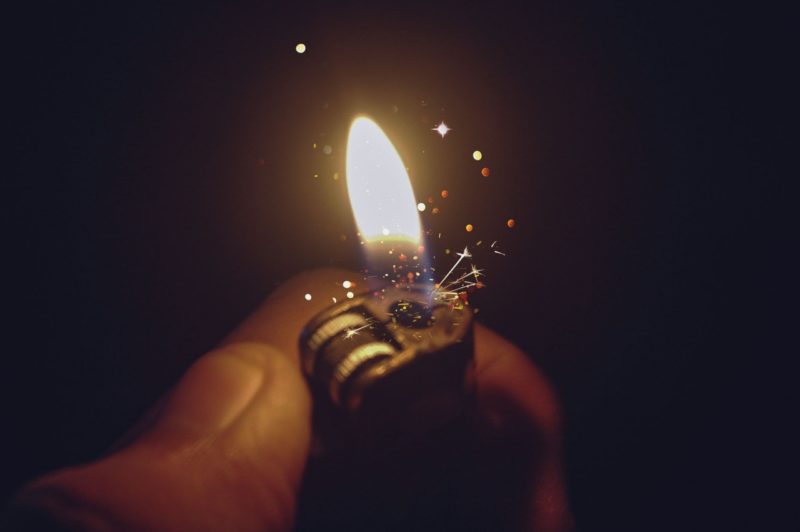
Then, I decided to burn it. I watched a few online tutorials about how you had to burn the sensor deep enough to release 3 metallic balls, which would free the pin while keeping the ink cavity intact.
I sat on my porch, lighter in one hand and sensor isolated in the other, a tail of fabric protruded from my fist like a magic trick. The lighter flicked on, the small flame reminiscent of distant cancer or a birthday cake. Burning always happens a lot slower than I expect. But once it catches, it happens in that predictable yet unstoppable way.
There is no such thing as a good person, only a person whose bad deeds we accept, with either ignorance or forgiveness. There are people who’ve resisted evil long enough to resemble goodness, and those who’ve never come close to feeling the heat and temptation. There are people who burn and roar right in front of us, and people whose goodness we defend only because we’re not the ones breathing their smoke.
The plastic sensor curled into itself, soft and dark. I wiped away the melted material with a napkin. Thick black smoke rose from my hands in the minutes I waited for the center to reveal itself. It all felt like a joke.
Me, crouching over a stolen (and smoking) cardigan on a porch with chipped paint. Me, wearing said cardigan to a day job where I played a professional who didn’t burn evidence from her crimes from the previous weekend. Me, being a version of myself that was both an exemplification of and exception to my true character.
I am still the kid who hates stealing, even when I steal. I am still the nonbeliever who has it out for love, even if I’ve finally found it.
***
Previous post ← Why My Real-life Boyfriend Feels Imaginary
Next post coming soon…






